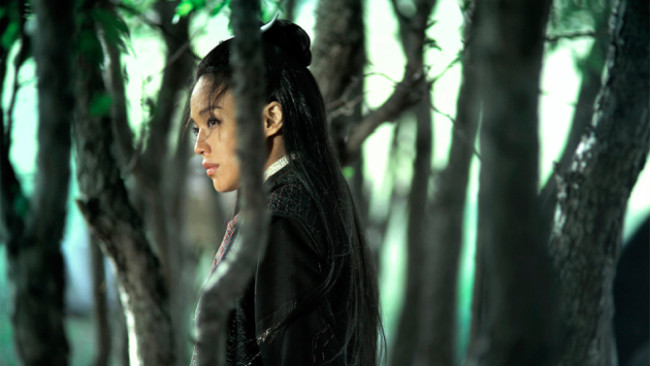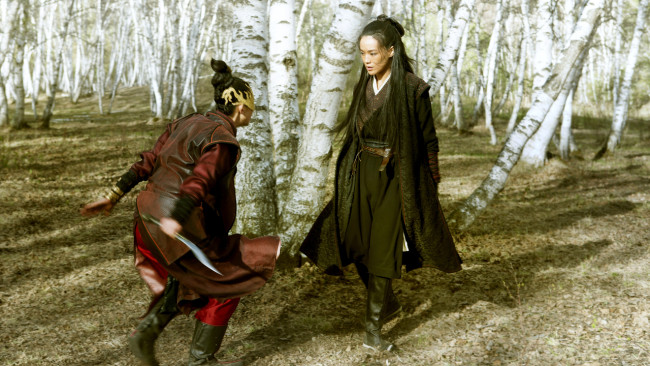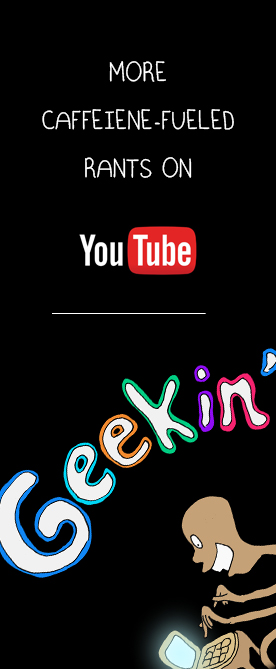By Mikhail Karadimov October 27th, 2015
I just got back from a trip to TN. There wasn’t much to do there—none of the theaters were close enough for me to walk to, not unless I wanted to brave the highways on foot.
I walked around the hotel, its parking lot, I dallied along Ringgold Road and took in the sights: the McDonalds, the Burger King, the car wash, the religious thrift shop, the Korean Market, and the churches, the churches that sprung out from the finest of cracks, the most barren of lands. But—as these things go—the church I most wanted access to was no where in sight.
I was cut off from my serenity, my sanity.
There was no where for me to pray, to float above the sinners, the uninitiated. I watched people as they walked to church, from church, how they filed and milled as congregations do, how they changed directions en masse, like a flock of birds linked by communal intuition. I also saw how they saw me: from their elevated perch. It looked nice. Looked dizzying.
I missed that.
CUT TO:
Back in New York.
My theaters remain intact, and so do their extensive libraries. Anything and everything I might want to see waits before me.
The movie at top of my list? The Assassin.
Nothing’s clear about the movie. All I know is that everyone who came out of Cannes tore at their hair raging to be the first to pontificate the movie’s greatness—but all the same: never pontificating anything concrete. I’m a pretentious man, a difficult man. I like to use twenty words when five will suffice. The Assassin is my kind of movie. I like it when I can’t recognize the actors or have to read subtitles. I like having earned the right to say I’ve seen the latest from Hou Hsiao-Hsien. It’s a great feeling. And a sinful one. Just as religion should be.
I set myself toward the Film Society.
Lincoln Center.
This is where the erudite go to validate their erudition. And it’s the only theater The Assassin deigns to play. All the elements have aligned: the ritual, the expectation, the self-importance, all in harmony. And, to top it all off, my lady has joined me. A lady, oddly enough, ecstatic about discarding her Friday night with a peculiar and particular movie. A niche. A teeny-tiny pinhole of a movie. Meant for only the few, the elite.
CUT TO:
The light flickers. The trailers play. We take turns running to the bathroom. I miss a piece of the first trailer, she the second. We settle ourselves in. And, at first, it’s magic. Black and white. 4:3 ratio. Beautiful photography, and swift violence. The blood’s abuzz. My heart’s thumping. I’m in a theater again, and I’m about to behold something unusual. It’s very possible that the lady and me are about to witness something we’ve never witnessed before.
But then the brakes come, and so does the slow dialogue, the thick exposition, the lingering shots in varying aspect ratios, the pretension, the snobbery, the self-indulgence. I see myself age; I see the seven years it took Hou to build this claptrap of boredom. I lose my shit. I grow acutely aware of my legs, their length, and the cramped arrangement of the seating. I remember my American Airlines flight, I remember the bad back, the awkward angles. I fidget around, worm about. I look for the right position. I cross my legs, re-cross them. And then I seek entertainment elsewhere—or rather, a distraction, a diversion, anything to help me avoid the tedium of Hou’s film. I listen to the woman filing her nails seven seat to my right. I pretend to be annoyed, but in actuality: I welcome the irritation. I look at the young couple in front of me and imagine them as film kids, as a directing team, or maybe I imagine her as a writer and him a director or her an actress and him—still—as a director, and then I flip it and make her a director and him—just a boyfriend. I cross my fingers for someone to run to the bathroom, to trip and start a commotion. I measure the scenes, give them a rough estimate, and start to calculate how much more I might have to endure. And for a moment, the most frightening moment of all, I fear that the movie will never end and that the lady and me will be forever trapped here in my theater, my church. But I can’t believe that—I refuse, too. A church is meant to be visited as a destination for a spiritual vacation. It shouldn’t be like solitary confinement or a hotel stuck in the middle of Bumblefuck, America, a loose buoy in a sea of gas stations and chains.
Here and there: the lady asks me questions, seeks clarification, and when she asks me these questions I start to worry that she might be liking it. Liking the movie. And I start to think about how I might have to curb my contempt. And now, I’m looking for eternity, for the chance to never have to lie and say I liked this drivel. But the movie simultaneously betrays and saves me, and it ends.
And I bite the bullet and I turn and I say: “What in the fuck was that about?”
The lady bursts out laughing. She’s relieved. We both are.
The Assassin’s over. Now we can go back to her place and—
CUT TO:
We talk about the movie on the train as a gang of Chinese kids flood the D and huddle around the lone available seat beside us. They take out a loose deck of cards and divvy them up into four hands of thirteen for a game of Chinese Poker.
Meanwhile: the lady and I talk about the disproportionate praise, the obscurity, the torture of Hou’s flick. But we don’t just dump. We also make sure to remember to play devil’s advocate. We theorize: “Maybe it’s anti-violent. Maybe it’s about the compassion of violence—what if women controlled all the violence?” “Maybe there’s something purely Chinese in it that we just can’t understand. Us white people.” “I heard it’s supposed to be steeped in some old Chinese fable. A long-standing narrative tradition.” “Or the director might just be fucking with us. At the end of it: he took advantage of his mystical seven year departure and fucked with us.”
And so I say to her, in closing, as one of the Chinese kids trumps his friend’s pair of aces with a full house: “People can’t watch that. They shouldn’t watch that. It’s now my mission to warn people. No one shall see this fucking movie.”
And she says: “Okay, baby, okay.”
CUT TO:
Next day.
All has been forgiven, but not forgotten.







